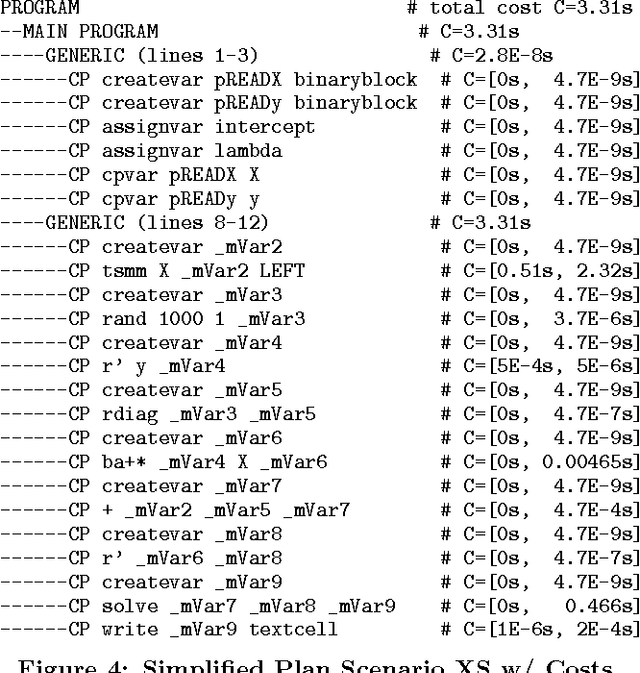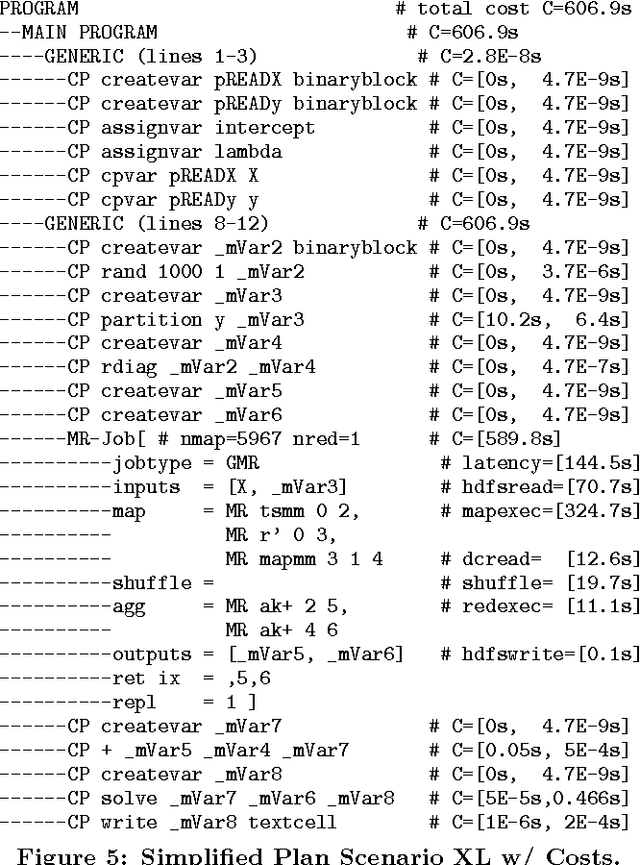Costing Generated Runtime Execution Plans for Large-Scale Machine Learning Programs
Paper and Code
Mar 22, 2015


Declarative large-scale machine learning (ML) aims at the specification of ML algorithms in a high-level language and automatic generation of hybrid runtime execution plans ranging from single node, in-memory computations to distributed computations on MapReduce (MR) or similar frameworks like Spark. The compilation of large-scale ML programs exhibits many opportunities for automatic optimization. Advanced cost-based optimization techniques require---as a fundamental precondition---an accurate cost model for evaluating the impact of optimization decisions. In this paper, we share insights into a simple and robust yet accurate technique for costing alternative runtime execution plans of ML programs. Our cost model relies on generating and costing runtime plans in order to automatically reflect all successive optimization phases. Costing runtime plans also captures control flow structures such as loops and branches, and a variety of cost factors like IO, latency, and computation costs. Finally, we linearize all these cost factors into a single measure of expected execution time. Within SystemML, this cost model is leveraged by several advanced optimizers like resource optimization and global data flow optimization. We share our lessons learned in order to provide foundations for the optimization of ML programs.
 Add to Chrome
Add to Chrome Add to Firefox
Add to Firefox Add to Edge
Add to Edge